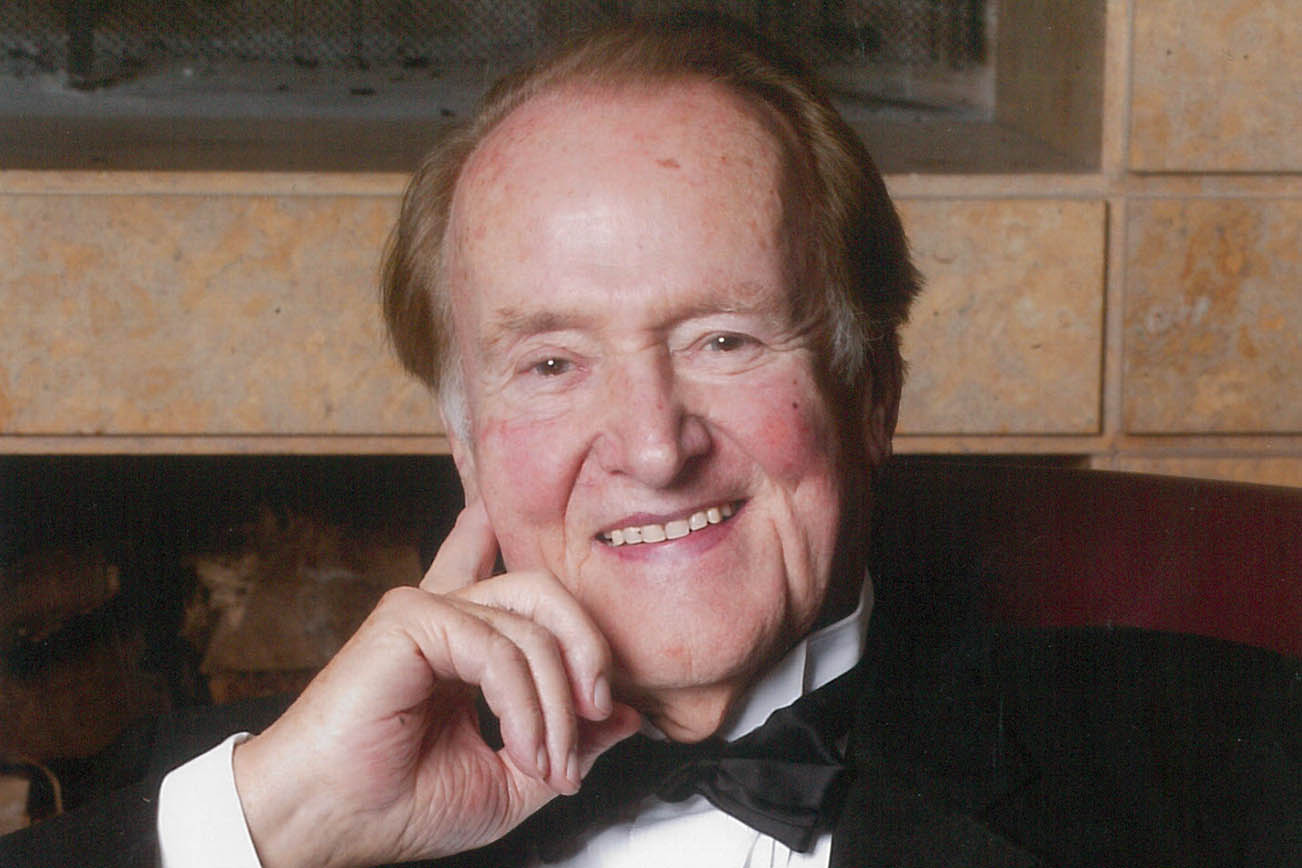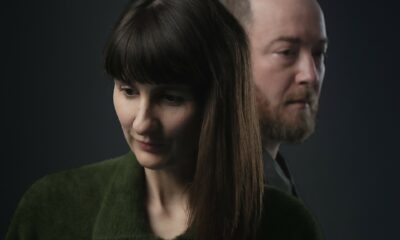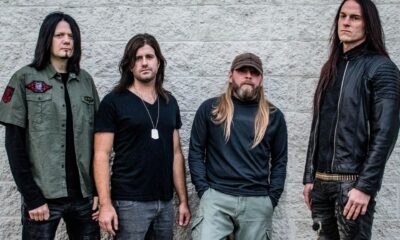Classical
Jan Vladimír MATĚJČEK (1926-2017): A Man of Honour, Integrity and Music
Jan Vladimir Matejcek passed away peacefully at 14:20 on Saturday, September 23, 2017, in Toronto, Canada, surrounded by his heartbroken but ever adoring family.

Overture: Sonata form.
“No one is actually dead until the ripples they cause in the world die away.” ~ Terry Pratchett
Jan Vladimir Matejcek passed away peacefully at 14:20 on Saturday, September 23, 2017, in Toronto, Canada, surrounded by his heartbroken but ever adoring family.
I was there. Before he slipped away, I held my hand to his still-beating heart and with bated breath, whispered my love for him through whimpers and tears. I swore to carry on his legacy. He heard me.
With vows fresh on my saddened lips, I took an uncomfortable seat by his greying feet and, whilst somehow hovering above my own body, slowly watched my small, mourning bloodline say goodbye to my grandfather as he slowly took his final breaths.
It was one of the most difficult – albeit moving – moments of my life. It stings like hell yet remains a magnificent justification for celebration; a reason to honour this man’s life, legwork and legacy. To hold my head high and move forward with pride, determination, and purpose.
You see, the man most have come to simply know as Jan, I’m fortunate to have known as Děda (Cezch for Grandpa). A man I often took for granted, granted this world so much. A man whom I didn’t call enough, was always on call for others. A man I wish I had more often told I love and respect, respected and loved more people than most. His passing reminds me of all he accomplished, and how hard he tirelessly fought for others. Always.
Jan. Grandpa. Děda… what didn’t, or couldn’t he do? It’s a long, long list.
First Movement: Slow and lyrical.
“I don’t wait for the calendar to figure out when I should live life.” ~ Gene Simmons
Děda spoke almost as many languages as I have fingers and played the piano like he belonged on stage, performing to sold-out crowds. He knew as much about philosophy and the universe as he did business and law. He was educated beyond belief yet was never boastful. He knew what to say and when to say it, but respected the value of simply listening.
He loved whiskey and wine as much as beer and vodka, but also understood moderation. He hung out with dignitaries, politicians and celebrities yet would be regularly found with his friends and neighbours. He had a PC, adopted Apple before the advent of the CD, and aimed to be proficient with most technology. He hunted, fished, could survive in the wilderness, and taught people to respect nature.
Děda was humble yet confident. He was rough and rugged but remained well-groomed and impeccably-dressed. He invested in stock and took stock of his investments. He had an answer for every question, before the internet, and if he didn’t, his web of incredible friends would. I even inherited my first set of golf clubs from a close friend of his who, of course, was a former British paratrooper.
He knew his knives and spices, cooked like a celebrity chef, and always insisted Weber BBQs were the best. He travelled the world, fought in a war, escaped communism and literally started from the bottom, long before Drake popularised the phrase. He knew how to romance a lady, was a bit of a player, but hopelessly fell in love and was a devoted husband. Twice.
He was a fantastic father, an exuberant grandpa, and was as ready to scold as he was spoil. He was a tough negotiator, familiar with weapons, yet one of the kindest and gentlest men I know. For every anecdote, he also had a joke. He was firm but fair, had great hair, hugged like a bear and above all, defined debonair.
Děda was James Bond before Ian Fleming penned the first such novel. To this day, he remains “the most interesting man in the world” and lived more in his lifetime than most even believe possible. Yes, this is an awe-inspiring list and somehow I’ve only begun to scratch the surface. For everything I remember, there are a dozen things I’ve missed.
I could spend months researching and further uncovering little-known facts and stories about my grandfather, but I think the point has been made. He lived. He lived a lot. And throughout his life, he spent the majority of his time caring for others.
Second Movement: Menuet.
“Do Not Stand at My Grave and Weep. I am not there. I do not sleep.” ~ Mary Elizabeth Frye
Jan was a lawyer, music editor, publisher and an administrator. He spent his entire career championing music and rights thereof. He was a writer and translator, speaker and lecturer. He was a panellist on contemporary music and questions of copyright and compensation for creators of musical works at various events and congresses. He contributed to countless articles for various European and Canadian publications and radio broadcasts.
He was a man of artistic integrity who spent a lifetime fighting for the integrity of artists. He was a son, a brother, a friend, a husband, a father, a grandfather, and great-grandfather.
Jan was my Děda and he will be missed. Sorely missed. Always.
So, what to do now? Simple. Work. Work hard. Work extremely hard. But never forget to also laugh, love, and above all else, LIVE!
Děda, wherever you are, please try to rest in peace. Even though we all know you’re probably already hard at work trying to make things better for everyone else.
Finale: Rollicking.
“Access to the arts is intrinsic to a high quality of life.” ~ Unknown
Although Děda aspired to be a conductor, he found himself immersed in a life-long pursuit of promoting music, championing the rights of musicians, composers, authors and publishers, not to mention tirelessly supporting Canadian creators of music.
A wonderfully-written summary of Jan’s life work and impact on music may be found at The Canadian Encyclopedia, Historica Canada. While I have you though, I would like to quickly present some key points per his memoirs.
1954-1961 – Foreign relations secretary of the Guild of Czechoslovak Composers.
1961-1962 – Managing Director of the Prague Symphony Orchestra.
1964-1966 – Head of the music department of the Czechoslovak theatrical and literary agency (DILIA) and general manager.
1966-1968 – Director General of Panton, the Guild’s music publishing house.
1968 – After fleeing Communism in Prague and emigrating to Germany, worked at Schott Sohne GmBH in Mainz, one of Germany’s oldest music publishers.
1969 – Emigrated to Canada and became a consultant for the Canadian Music Centre.
1970 – Executive Secretary of the Ontario Federation of Symphony Orchestras (OFSO) and subsequent first Executive director of the Ontario Choral Federation.
1970-1973 – Initiated the formation of the Association of Symphony Orchestras and became a member of its steering committee and its founding Board.
– Organized the first overseas tour of the Festival Singers of Canada under Elmer Iseler.
– Invited to join the administration of CAPAC (the Composers, Authors, and Publishers Association of Canada) as its Executive Assistant and Secretary of the CAPAC – CAB Committee for the promotion of Canadian music.
1974-1975 – Organized concerts of the Canadian Orchestral music in Paris and made a special presentation on the subject at the Canadian Culture Centre.
1977 – Organised and arranged a festival of Canadian music, art and film in Bonn, Saarbrucken and Strassbourg, the latter with the help of the Canadian Council.
– Became Assistant General Manager of PROCAN (the Performing Rights Organization of Canada) in charge of the international division.
1980 – Became General Manager of PROCAN
1984 – Became President of PROCAN and was instrumental in establishing direct reciprocal representation agreements with all other existing performing rights societies in the word.
– He successfully fought for a fivefold increase in revenue for PROCAN’s thousands of affiliated writers and composers
– Made the organization one of the world’s most efficient, fully computerised author’s collective.
1985 – Founded, in cooperation with the French author’s society SACEM and the Quebec’s authors and composers’ collective SPAQ, North America’s first composer controlled collective for the collection of reproduction and synchronization rights (SODRAC) which is now fully operational in the national and international scenes.
1986 – Appointed to the Executive Committee of CISAC (International Council of Composers, Authors and Publishers) and in his position of President of PROCAN fought for and was instrumental in the merging of the two Canadian Performing Rights Societies (PROCAN and CAPAC) to form a single organisation, the Society of Composers, Authors, and Music Publishers of Canada (SOCAN).
1990 – Appointed SOCAN’s first Chief Executive Officer.
1992 – Announced his retirement during the meeting of the CSIAC Executive in Stockholm to which the President of SACEM and the Executive Jean-Loup Tournier proclaimed the merger of the societies of which Jan was the architect was “a unique historical event in the long tradition of the life of performing rights societies.”
1999 – Invited to hold two lectures about copyright and its implications worldwide at the Law Faculty of Charles University in Prague.
– Appointed member of the Artistic Advisory (programme) Committee of the “Prague Spring” council of the International “Prague Spring” Music Festival.
1996 – Published “The History of BMI Canada Litd. and PROCAN and the role they played in Canadian music and in the formation of SOCAN” the only Canadian Performing rights society.
2010 – Self-published “Before Memories Fade”, a book chronicling the Matejcek family dating back several hundred years.
-

 Alternative/Rock6 days ago
Alternative/Rock6 days agoTom Walker Puts on Spellbinding Performance at Leeds O2 Academy
-

 Alternative/Rock2 weeks ago
Alternative/Rock2 weeks agoThe Warning Shake the Foundations of a Sold-Out Leeds Stylus [Photos]
-

 Alternative/Rock5 days ago
Alternative/Rock5 days agoThe Cruel Knives Headline Top Night of British Rock at Manchester’s The Lodge [Photos]
-

 Hip-Hop/Rap1 day ago
Hip-Hop/Rap1 day agoFormz: “I was always the confident kid in school, with a passion for entertaining and being the centre of attention..”
-

 Alternative/Rock5 days ago
Alternative/Rock5 days agoThe V13 Fix #012 w/ Dååth, Unearthly Rites, maybeshewill and more
-

 Alternative/Rock2 weeks ago
Alternative/Rock2 weeks agoThe V13 Fix #011 w/ Microwave, Full Of Hell, Cold Years and more
-

 Indie2 weeks ago
Indie2 weeks agoDeadset Premiere Music Video for Addiction-Inspired “Heavy Eyes” Single
-

 Interviews2 days ago
Interviews2 days agoKill The Lights Michael ‘Moose’ Thomas Talks Success, International Bandmates and more
















